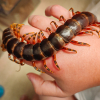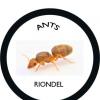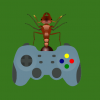And when I say sugar source I mean plain sugar source: dry form and the diluted form (honey water, sugar water etc 1:3 ratio)
So we know that ants like sugar because it's a great source of carbohydrates which gives them energy for their daily functions.
Alright so, lets say for me, this question is mostly for carpenter ants. But I'd be somewhat curious about meat ants and ants that eat seeds like harvester ants.
So protein source, without it, for carpenter ants at least, it would just mean their brood won't develop, but they'll still be alive.
Water is vital and it seems like a week or so with absolutely no water with a full gaster prior?
So, no sugar source WITH and WITHOUT protein, protein source will be insects. How long do you think? And what's the side effects of a low sugar / no sugar diet (would it cause them to prey on their own brood, do they seem more lethargic with less sugar)?
Water will always be present.
EDIT: Also, how this would change from period when they're active during the warmer months and during cooldowns (ants that are simply kept in room temperature) or those hibernating.
PURPOSE OF THIS:
Want to know how vital a sugar source are to ants and it's always nice to know the limitation in order to not cross it, but also to know the limits of it still being okay and when to really worry. Like in extended periods away from home.
Edited by BleepingBleepers, February 22 2024 - 10:41 AM.




















